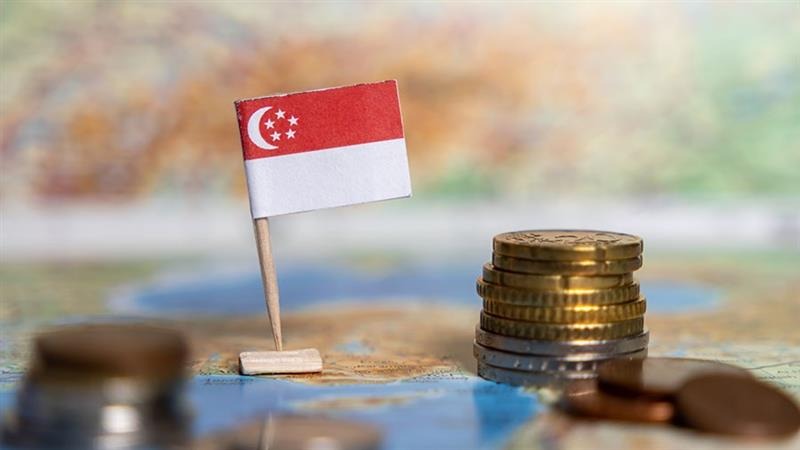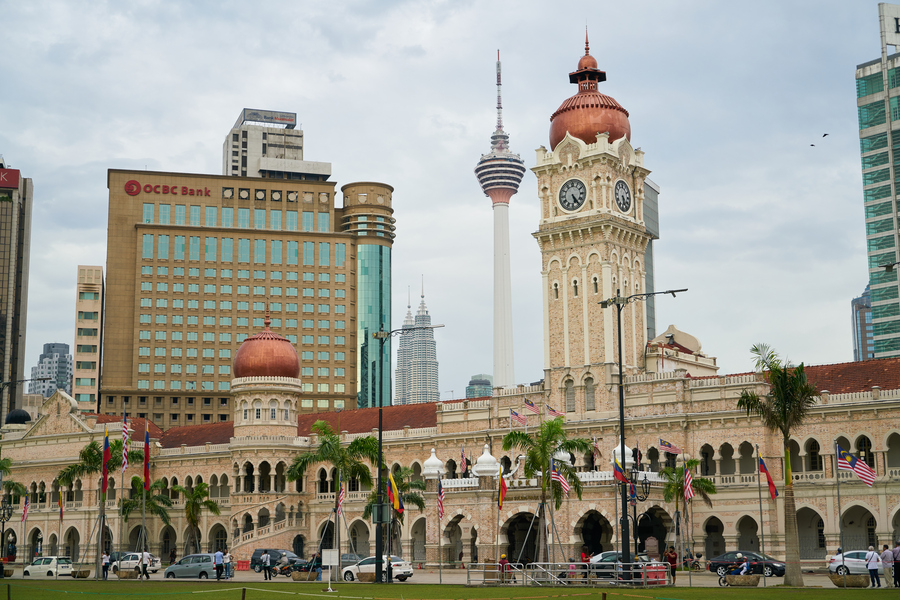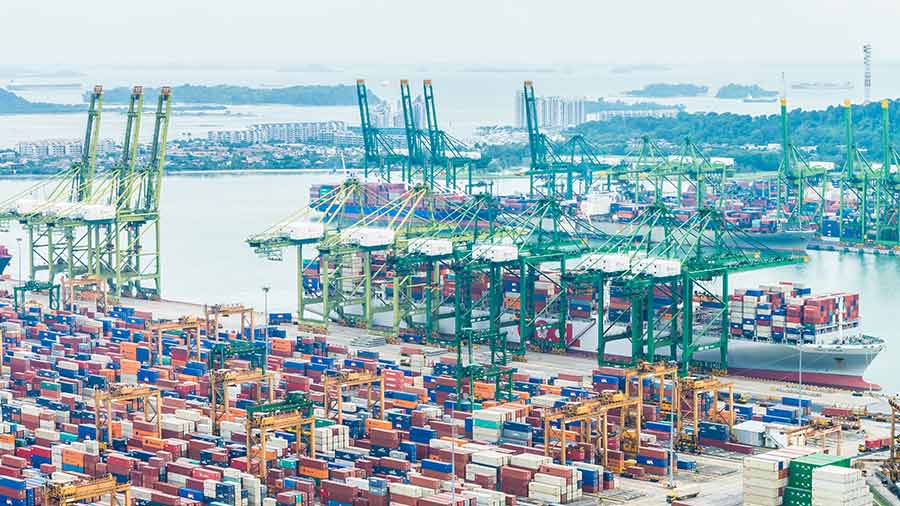Economy & Trade
Qualifying for CIT Incentives in Vietnam – A Guide for Foreign Companies
03/05/2026Foreign companies may qualify for CIT incentives in Vietnam, with tax holidays and reduced rates available based on sector and investment location.
How the Iran Conflict Should Change Energy, Supply Chain, and Market Entry Planning in ASEAN
03/04/2026Explore how the Iran conflict could affect energy prices, supply chains, and investment planning across ASEAN’s major economies.
Malaysia’s Rising Role in US Trade and What It Means for Foreign Investors
02/27/2026Explore US–Malaysia trade trends, key export sectors, and why Malaysia is becoming a critical supply chain partner for foreign investors.
Singapore Budget 2026 and its Impact on Foreign Investors: Tax, Incentives, and Strategic Signals
02/26/2026Singapore Budget 2026 brings tax rebates, innovation incentives, and expansion support. Learn how the changes affect foreign investor costs and strategy.
Singapore RHQ and IHQ Incentives: What Multinationals Should Know
02/25/2026Learn how Singapore RHQ and IHQ incentives work, including eligibility, tax benefits, and risks for multinational headquarters.
An Introduction to Doing Business in Indonesia 2026 – New Publication from Dezan Shira & Associates
02/24/2026An Introduction to Doing Business in Indonesia 2026 covers market entry, tax, HR & payroll, and audit & compliance considerations.
-
02/18/2026
Should Investors Consolidate Indonesia Operations Under a Holding Company?
ASEAN Briefing -
02/17/2026
Singapore AML and KYC Rules for Foreign Shareholders
ASEAN Briefing -
02/16/2026
Minimum Capital Requirements for Foreign Investors in Malaysia: Sector-Specific Rules Explained
ASEAN Briefing -
02/13/2026
How to Add or Amend Business Activities After Incorporation in the Philippines
ASEAN Briefing -
02/09/2026
Using Business Intelligence to Evaluate Workforce Availability and Wage Levels in Indonesia
ASEAN Briefing
Tax & Accounting
Corporate Tax Risks in Vietnam: What Foreign-Owned Companies Get Wrong and How to Mitigate Exposure
03/03/2026Foreign-owned companies in Vietnam face tax risks beyond the 20% CIT rate, requiring careful assessment of transfer pricing, incentives, VAT, and enforcement exposure.
Singapore RHQ and IHQ Incentives: What Multinationals Should Know
02/25/2026Learn how Singapore RHQ and IHQ incentives work, including eligibility, tax benefits, and risks for multinational headquarters.
Tax Treatment of Intercompany Funding and Royalties in Malaysia
02/20/2026Explore how Malaysia taxes intercompany loans and royalty payments, including withholding tax, EBITDA limits, and structuring considerations.
Selecting the Right Transfer Pricing Method in Vietnam: TNMM, CUP, or Cost-Plus
02/13/2026Foreign investors assessing TNMM, CUP, or Cost-Plus in Vietnam must align profit allocation with audit risk and enforcement practice.
Vietnam Year-End Closing and Audit Preparation for Foreign-Invested Enterprises
02/11/2026Foreign investors should assess Vietnam’s year-end closing rules, statutory audits, tax risks, and profit repatriation limits.
Vietnam’s 183-Day Rule: Tax Implications for Foreign Employees
02/11/2026Understand how Vietnam’s 183-day rule changes tax exposure, withholding, and assignment structuring for foreign staff.
-
02/05/2026
Understanding Capital Gains Treatment for Share and Asset Transfers in the Philippines
ASEAN Briefing -
02/04/2026
Capital Injection vs Shareholder Loans: Tax Implications for Foreign Investors in Indonesia
ASEAN Briefing -
02/03/2026
Corporate Income Tax Framework for Foreign-Owned Companies in Vietnam
ASEAN Briefing -
01/29/2026
VAT Registration and Ongoing Compliance Considerations in Vietnam
ASEAN Briefing -
01/27/2026
How to Reduce Withholding Tax on Cross-Border Payments in the Philippines
ASEAN Briefing
Legal & Regulatory
Shareholder Agreements in Singapore for Foreign Investors: Control, Exit Rights, and Protection
02/23/2026Learn how shareholder agreements in Singapore help foreign investors manage control, funding risk, and exit planning in joint venture structures.
Should Investors Consolidate Indonesia Operations Under a Holding Company?
02/18/2026Foreign investors assess when a holding company improves control, tax efficiency, risk isolation, and exit readiness in Indonesia.
Singapore AML and KYC Rules for Foreign Shareholders
02/17/2026Singapore AML and KYC rules for foreign shareholders and their impact on bank account approval.
Minimum Capital Requirements for Foreign Investors in Malaysia: Sector-Specific Rules Explained
02/16/2026Foreign investors should assess Malaysia’s sector-specific capital thresholds, licensing triggers, and practical requirements before market entry to avoid restructuring risk.
How Indonesia’s PT PMA Structure Fits Foreign Ownership and Control Requirements
02/10/2026Foreign investors can use a PT PMA to secure ownership control capital structure and profit repatriation in Indonesia.
Navigating Thailand’s Competition Law and Merger Approval Regime for Foreign Businesses
02/05/2026Understand Thailand’s merger control thresholds, approval timelines, and how competition law impacts foreign acquisitions and deal execution.
-
01/28/2026
Common Structuring Gaps That Delay Banking or Activation in Singapore
ASEAN Briefing -
01/24/2026
Foreign Ownership Rules and Conditional Sector Access in Indonesia
ASEAN Briefing -
01/02/2026
Banking, Account Opening, And Source-Of-Funds Scrutiny in Singapore
ASEAN Briefing -
12/30/2025
Enforcing Commercial Contracts in the Philippines: An Investor Enforcement Perspective
ASEAN Briefing -
12/16/2025
Should Foreign Investors Form an Exempt Pte Ltd or a Standard Pte Ltd in Singapore?
ASEAN Briefing
Industries
Singapore’s F&B Sector: Entering 2026 an Entry Decision for Foreign Investors
12/26/2025Is Singapore’s F&B sector still worth entering in 2026? A data-driven assessment for foreign investors.
Should You Invest in Methanol and Ammonia Bunkering in Singapore
10/27/2025Methanol and ammonia are transforming Singapore’s bunkering sector, offering new opportunities and risks for early-stage investors.
Vietnam Cold-Chain and Agritech Opportunities for Foreign Investors
09/19/2025Vietnam’s cold-chain and agritech upgrades cut losses and raise export margins, creating strong opportunities for foreign investors.
Investing in Vietnam’s Textile Recycling Industry: An Investor’s Guide
09/04/2025Vietnam’s textile recycling market is expanding rapidly, with US and EU compliance shaping key investment opportunities.
How BOI EV 3.5 Shapes the Future of EV Battery Investments in Thailand
09/02/2025Thailand’s BOI EV 3.5 offers subsidies, tax relief, and export flexibility for EV battery investors through 2027.
Cell and Gene Therapy Manufacturing in Singapore: An Investor’s Operating Thesis
09/02/2025Explore investment pathways in Singapore’s cell and gene therapy sector, from facilities to CDMOs, with tax and regulatory insights.
-
08/20/2025
Investing in Vietnam Electronics & Components: Licensing, Incentives, and Location Choices
ASEAN Briefing -
08/01/2025
Indonesia’s Construction Market: Growth Drivers and 2030 Forecast
ASEAN Briefing -
07/14/2025
Beyond Call Centers: The Rise of High-Value IT-BPM Services in the Philippines
ASEAN Briefing -
07/09/2025
Islamic Finance in Singapore: Unlocking Growth Potential in a Strategic Financial Hub
ASEAN Briefing -
07/08/2025
Foreign Ownership Rules in the Philippines: What’s Allowed and Restricted
ASEAN Briefing
HR & Payroll
THR Compliance in Indonesia: What Foreign Employers Must Review Before Eid 2026
03/04/2026Most employers in Indonesia must pay THR before Eid 2026. Learn the payment deadline, calculation rules, tax impact, and compliance risks.
Vietnam’s 183-Day Rule: Tax Implications for Foreign Employees
02/11/2026Understand how Vietnam’s 183-day rule changes tax exposure, withholding, and assignment structuring for foreign staff.
Using Business Intelligence to Evaluate Workforce Availability and Wage Levels in Indonesia
02/09/2026Investors use business intelligence to assess workforce supply, wage levels, and hiring risks before selecting locations in Indonesia.
Malaysia Revises Its Expatriate Employment Policy
01/19/2026Malaysia will revise its expatriate employment policy from June 2026, raising salary thresholds and introducing time limits for Employment Pass holders.
Local Director and Management Presence Requirements in Singapore
01/06/2026Foreign investors should assess Singapore’s local director and management presence rules, nominee disclosure updates, and governance expectations.
Should Foreign Companies in Indonesia Appoint Local Directors for Governance or Compliance Only?
12/22/2025Foreign companies in Indonesia must assess when local directors should hold real authority and how governance choices affect risk and control.
-
12/17/2025
Employment Contracts and Probation Rules for Foreign Employers in Vietnam
ASEAN Briefing -
12/09/2025
Contract of Service vs Contract for Service in Malaysia
ASEAN Briefing -
11/26/2025
Thailand Introduces Digital Work Permit System for Foreign Employers
ASEAN Briefing -
11/17/2025
Payroll in Malaysia: Understanding Monthly Tax Deductions, EPF, and SOCSO Contributions
ASEAN Briefing -
11/04/2025
Which Philippine Work Visa Best Fits Foreign Investors
ASEAN Briefing
 Our firm Dezan Shira & Associates provides legal, tax and operational advisory across Asia.
Our firm Dezan Shira & Associates provides legal, tax and operational advisory across Asia. 






























